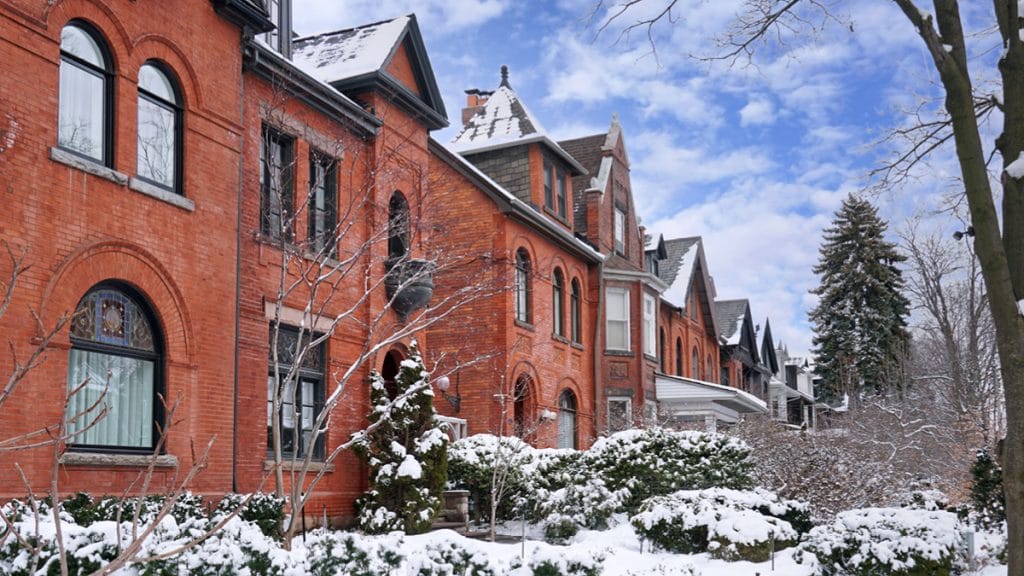
The activity gained momentum in the final quarter of 2024, resulting in moderate price gains and setting the stage for a brisk spring market.
Despite economic and political uncertainty – both in Canada and south of the border – a revival of our national real estate market is underway thanks to lower interest rates, changes to mortgage lending rules, and renewed buyer demand. Vigorous activity through the final months of 2024 in most major regions from coast to coast resulted in moderate price gains nationally.
According to the Royal LePage® House Price Survey released today, the aggregate price of a home in Canada increased 3.8% year over year to $819,600 in the fourth quarter of 2024. The national aggregate home price remained flat on a quarter-over-quarter basis, rising a modest 0.5%. While activity began to flourish again in the final months of 2024, following sluggish demand in most major markets over the summer, home price appreciation remained in check last quarter.
“There are several converging factors revitalizing Canada’s real estate market and making homeownership more attainable,” said Phil Soper, president and CEO of Royal LePage. “Interest rates have fallen sharply in recent months, with further reductions expected in 2025. We believe the Bank of Canada could lower rates by another 100 basis points by year-end, steadily improving affordability. At the same time, new mortgage rules are already helping younger Canadians by increasing borrowing power and reducing monthly carrying costs.
“While geopolitical uncertainty and concerns over the Trump administration’s proposed trade policies may weigh on consumer confidence, residential real estate remains largely insulated from such external pressures in the short term. Domestic factors fundamentally drive Canada’s housing market. With strong full-time job growth, improving housing supply in key markets, and more accessible financing, we expect healthy activity levels to persist, even as broader economic challenges unfold,” said Soper.
When broken out by housing type, the national median price of a single-family detached home increased 4.9% year over year to $855,900, while the median price of a condominium increased 1.5% year over year to $592,700. On a quarter-over-quarter basis, home prices remained virtually flat, with the median price of a single-family detached home increasing a modest 0.6% and the median price of a condominium rising just 0.4%. RPS Real Property Solutions, a leading Canadian real estate valuation company, provides price data, which includes both resale and new build.
What impact will a federal election have on the housing market?
Following Prime Minister Justin Trudeau’s resignation and the prorogation of government on January 6th, an early federal election has become all but certain. When the House of Commons resumes in late March, an immediate confidence vote is not expected to pass, triggering an election by mid-spring. The Liberal party is expected to select a new leader by March 9th.
“Canadians will be understandably nervous with a federal election campaign at home and an aggressive stance on trade expected from the new U.S. administration. That said, the critical need for housing in Canada transcends political cycles. The next government must prioritize addressing the supply crisis, which affects millions of Canadians seeking affordable shelter and stability for their families,” Soper commented.
“For more than three decades, we’ve been underbuilding in Canada, a challenge worsened by the pandemic and our rapidly growing population. As we approach the federal election, housing access and affordability will undoubtedly be among the most pressing issues voters will demand candidates address.”
Revised mortgage policies and lower lending rates
New lending regulations came into effect at the end of 2024 to improve accessibility for first-time buyers and existing homeowners. Changes include the expansion of eligibility for 30-year amortizations on insured mortgages to all first-time homebuyers and all buyers of newly constructed homes, an increase from the previous 25-year maximum. Additionally, the mortgage insurance cap rose from $1 million to $1.5 million, enabling buyers who put less than 20 percent down to consider higher-priced properties. This change is particularly significant in Canada’s most expensive real estate markets, where average home prices exceed $1 million. And, for those with mortgages renewing, removing the stress test requirement for uninsured borrowers switching lenders will allow Canadians more excellent choices and likely better rates, as banks will offer more competitive options to retain and attract clients.
“These regulatory changes mark a significant shift in improving access to homeownership for Canadians,” said Soper. “By expanding amortizations and raising the mortgage insurance cap, first-time buyers and those in high-priced markets will find it easier to purchase a home. Additionally, removing the stress test requirement for existing homeowners switching lenders will give Canadians more excellent choices and likely better rates as financial institutions compete aggressively to retain and attract clients.
“While extending the life of a mortgage may result in higher overall interest paid, the reduction in monthly carrying costs will help address one of the most immediate barriers to affordability. These new policies will make the dream of home ownership attainable for more Canadians,” he concluded.
Contact one of our Fully-licensed REALTORS® today!
Are you seeking an experienced REALTOR® who specializes in the Windsor and Essex County real estate markets? At Royal LePage Binder Real Estate, our agents are focused on helping you unlock your future.
